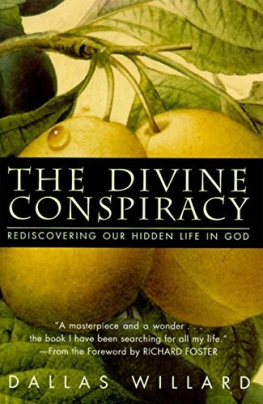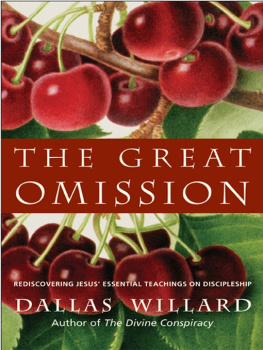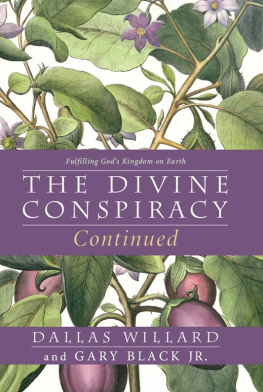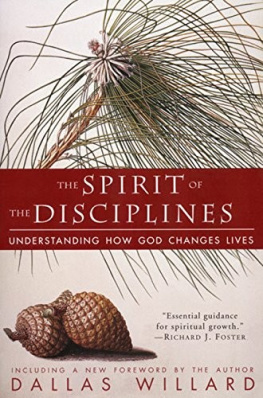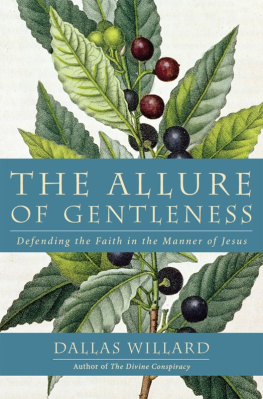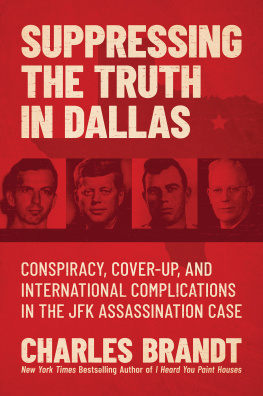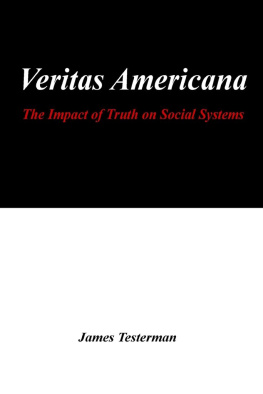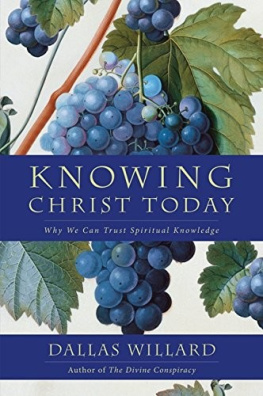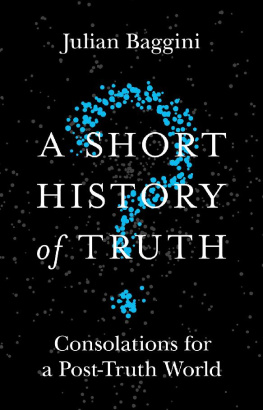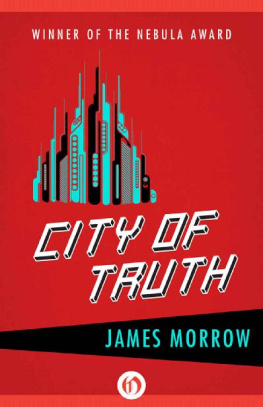Contributors
Jeremy S. Begbie is the Thomas A. Langford Research Professor of Theology at Duke Divinity School. He teaches systematic theology and specializes in the interface between theology and music. He is an ordained minister of the Church of England and a professionally trained musician. His most recent book is Resounding Truth: Christian Wisdom in the World of Music .
Rodney Brooks is director of the MIT Computer Science and Artificial Intelligence Laboratory and is the Panasonic Professor of Robotics. His research is concerned with both the engineering of intelligent robots and with understanding human intelligence through building humanoid robots. His most recent book is Flesh and Machines: How Robots Will Change Us .
Francis S. Collins is a physician-geneticist and director of the National Institutes of Health (NIH). As head of the Human Genome Project, Collins led an international collaboration of scientists in sequencing the human genome in 2003. His book, The Language of God: A Scientist Presents Evidence for Belief , spent many weeks on the New York Times bestseller list.
Os Guinness is an author and a social critic. Born in China to missionary parents and educated at Oxford, England, Guinness has written numerous books, including, Time for Truth: Living Free in a World of Lies, Hype, and Spin ; The Call: Finding and Fulfilling the Central Purpose of Your Life ; and his latest, The Case for Civility: And Why Our Future Depends on It .
John Hare is a British classicist, ethicist and currently Noah Porter Professor of Philosophical Theology at Yale Divinity School. Educated at Oxford and Princeton, Hares best-known book, The Moral Gap , develops an account of the need for Gods assistance in meeting the moral demand of which God is the source.
David J. Helfand is chair of the department of astronomy at Columbia University and the codirector of the Columbia Astrophysics Laboratory. He has also served as part of the universitys physics department. His research interests include radio surveys, the origin and evolution of neutron stars and supernova remnants, and active galactic nuclei.
Timothy J. Keller is the senior pastor at Redeemer Presbyterian Church in New York City. He has also served as assistant professor of practical theology at Westminster Theological Seminary. He is author of The Prodigal God, Counterfeit Gods and the New York Times bestseller The Reason for God: Belief in an Age of Skepticism .
Alister McGrath is professor of theology, ministry and education, and head of the Center for Theology, Religion and Culture at Kings College London. He is also president of the Oxford Center for Christian Apologetics. He teaches in areas of apologetics, systematic theology, and the interaction of science and religion. He is the author of many studies, including the international bestseller The Dawkins Delusion? and The Passionate Intellect.
John Warwick Montgomery is emeritus professor of law and humanities, University of Bedfordshire, England; Distinguished Research Professor of Apologetics and Christian Thought, Patrick Henry College; and director of the International Academy of Apologetics, Evangelism and Human Rights in Strasbourg, France. His legal specialty is the international and comparative law of human rights. He is the author of some fifty books in five languages, including Human Rights and Human Dignity .
Richard John Neuhaus (d. January 8, 2009) was a prominent American Roman Catholic priest and writer. He was the founder and editor of the monthly journal on religion and society First Things . He is author of several books, including the bestseller The Naked Public Square: Religion and Democracy in America .
Rosalind W. Picard is founder and director of the Affective Computing Research Group at the MIT Media Laboratory and codirector of the Things That Think Consortium. She has authored numerous peer-reviewed scientific articles in multidimensional signal modeling, computer vision, pattern recognition, machine learning and human-computer interaction. Picard is known internationally for pioneering research in affective computing and in content-based image and video retrieval.
Mary Poplin is a professor of education at Claremont Graduate University in California. She is the author of Finding Calcutta: What Mother Teresa Taught Me About Meaningful Work and Service . Poplins educational research focuses on highly effective people in urban poor schools.
Hugh Ross is a Christian apologist and founder of the science-faith think tank Reasons to Believe (RTB), with degrees in physics from the University of British Columbia, graduate degrees in astronomy from the University of Toronto, and postdoctoral research in quasi-stellar objects, or quasars, at Caltech. His most recent book is More Than a Theory: Revealing a Testable Model for Creation .
Ronald J. Sider is a theologian and activist, professor of theology, holistic ministry and public policy at Palmer Theological Seminary, and president of Evangelicals for Social Action. Sider has spoken and written prolifically on the need for Christians to act for social justice, including in his seminal book Rich Christians in an Age of Hunger .
Peter Singer is Ira W. DeCamp Professor of Bioethics at Princeton University and Laureate Professor at the University of Melbourne. His work with ethics has generated intense debate in the academy and beyond. He is founding president of the International Association of Bioethics, and founding coeditor of the journal Bioethics . His latest publication is titled The Life You Can Save: Acting Now to End World Poverty .
Paul C. Vitz is Professor Emeritus of psychology at New York University and Professor of Psychology and Senior Scholar at the Institute for the Psychological Sciences in Arlington, Virginia. He is also a member of the Fellowship of Catholic Scholars. Among his books on atheism are Faith of the Fatherless: The Psychology of Atheism and Sigmund Freuds Christian Unconscious .
Dallas Willard is a Christian scholar and author. He has long been a professor of philosophy at the University of Southern California, working in the field of logic and epistemology. His book The Divine Conspiracy was selected as Christianity Today s Book of the Year for 1999. Some of his other books include The Spirit of the Disciplines and Knowing Christ Today .
N. T. Wright is Professor of New Testament and Early Christianity at the University of St. Andrews, and one of todays leading theologians and biblical scholars. He was Bishop of Durham from 2003 to 2010, and has taught New Testament studies at Cambridge, McGill, and Oxford Universities. Among his many published works are Jesus and the Victory of God , The Challenge of Jesus and Simply Christian .
About the Editor
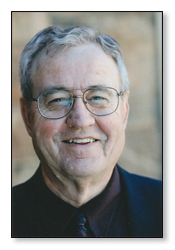
Dallas Willard (1935-2013) was a professor in the School of Philosophy at the University of Southern California in Los Angeles. A highly influential author and teacher, Willard was as celebrated for his enduring writings on spiritual formation as he was for his scholarship. His books include The Divine Conspiracy (Christianity Todays Book of the Year in 1998), The Spirit of the Disciplines , Hearing God , Renovation of the Heart and others.
Foreword
Universities today search for the truth, but the terms of success arent what they once were. Science is the dominant mode of knowledge, and other areas of inquiry have had to adapt to the changed academic ecology.
Scientific knowledge is progressive, mutable and always subject to more precise confirmation. Its successes are practical, resulting in increased power over human life. Atom bombs and the Internet, synthetic insulin and Octomomnone of this would have been possible without the cumulative scientific discoveries of the past century, including many with roots in university research.


